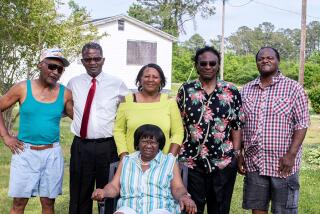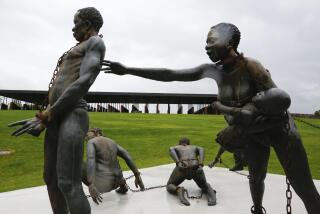Rosewood Retrospective
- Share via
As a native Floridian, I pledged from first knowledge of the Rosewood massacre that I would do all within my power to see that the survivors received redress of their grievances, whether or not I ever made a movie about it (“A Massacre, the Movies and the Obligations of Memory,” by Eric Harrison, Oct. 16). When I engaged Holland & Knight in behalf of Lee Ruth Davis and Minnie Lee Langley, I charged the law firm with seeking out and representing all the survivors, and they undertook that responsibility.
Contrary to your portrayal, I never attempted to exclude anyone from being beneficiaries of the legal action, nor did I have the power to do so, should I have chosen to. I never specified the number or the exact whereabouts of the additional survivors on the Maury Povich TV show, because I simply did not know of them.
It is true that I limited the number of survivors from whom I purchased story rights. I had to work within a budget--this was, after all, a story Holywood already had rejected once--and I concentrated first on securing rights from Langley, Davis and a third character I thought was essential to telling the story. It was, however, my intent to reach out to other potential participants when a movie or TV deal was made.
Michael O’McCarthy
Travelers Rest, S.C.
Reading about Rosewood reminds me of all the pain and suffering that African Americans have encountered throughout the ages. I don’t think that $2.1 million, or $150,000 for each person, would compensate for the emotional trauma the Rosewood survivors endured.
Corenne Dixon
Los Angeles
More to Read
Only good movies
Get the Indie Focus newsletter, Mark Olsen's weekly guide to the world of cinema.
You may occasionally receive promotional content from the Los Angeles Times.









